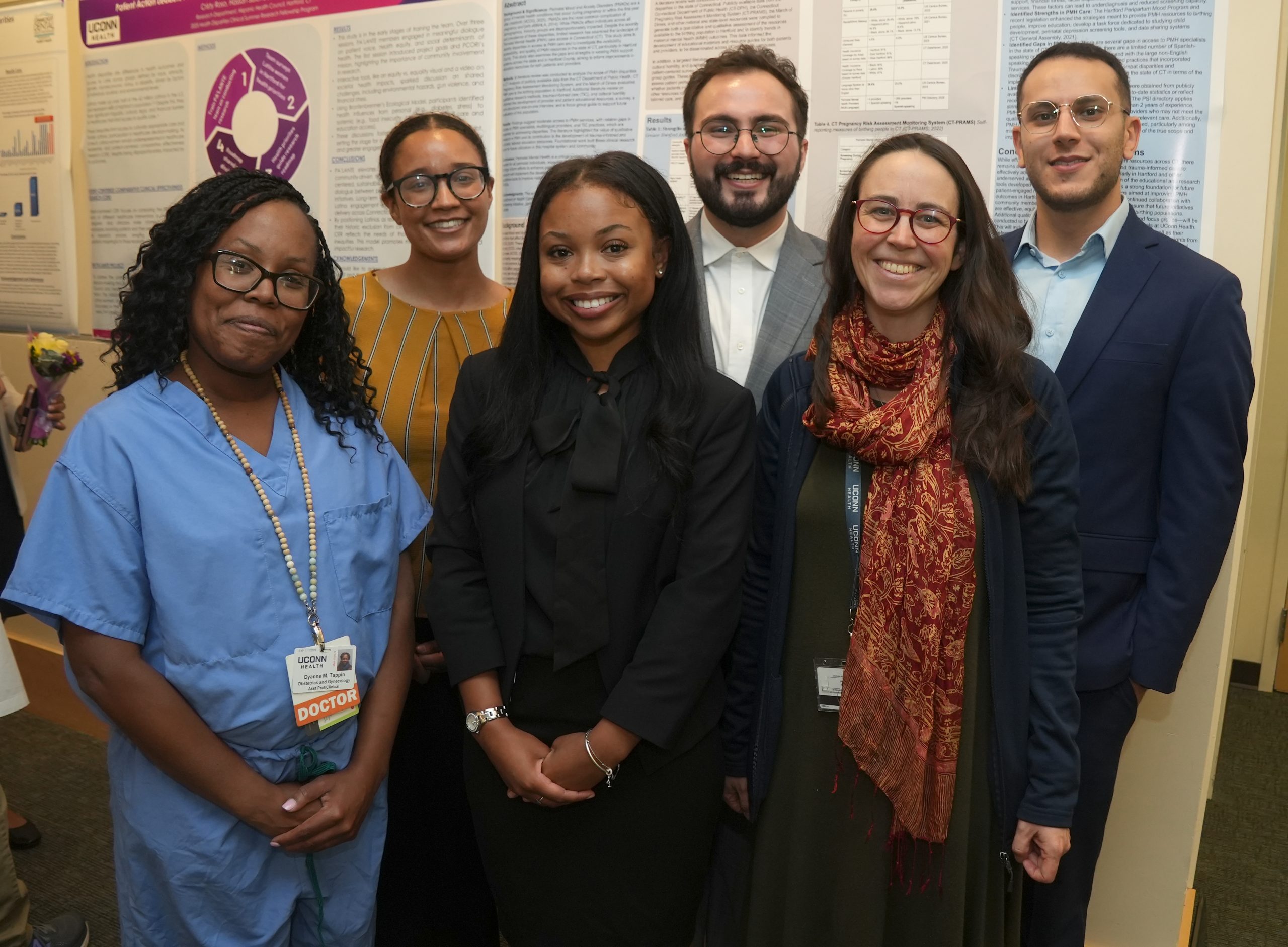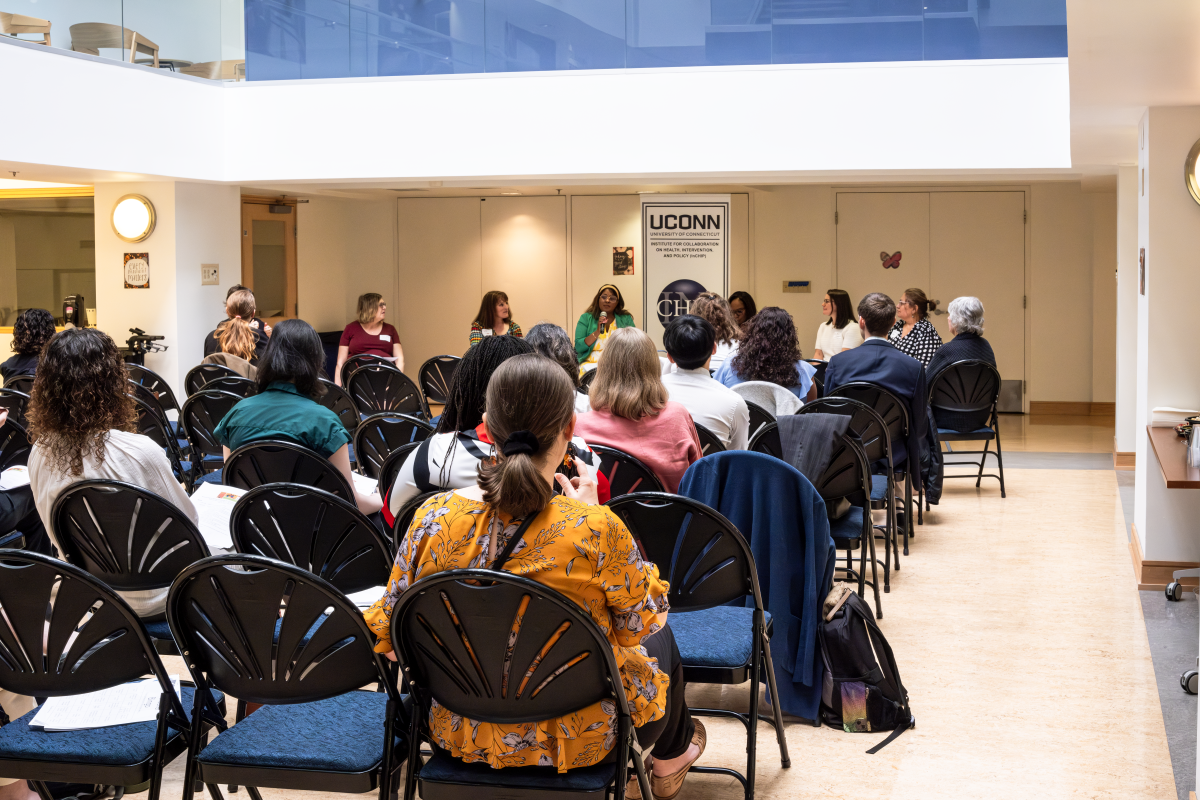Mitigating Climate Change Extinction
UConn ecology and evolutionary biology professor Mark Urban has crunched the numbers — again — and the results are even clearer: For every degree that global temperatures rise, more species will become extinct.
Published in the journal Science in December 2024, Urban’s latest meta-analysis of 485 studies, comprising over 5 million projections, finds that if global temperatures rise by 1.5 degrees Celsius or more, as many as one-third of species across the globe will be threatened.
“Whereas past assessments indicated high uncertainties, this analysis suggests with increasing certainty that climate change has caused and will cause global extinctions,” Urban says. “Climate change results in an accelerating risk of global extinction, rising from 2% currently to 30% under the highest-emission scenario.
“Current policies and actions place the world on a path to a 2.8 degrees Celsius rise in global temperature, which would still result in 5% of species being at risk. This study presents a choice for decisionmakers: Will we curb emissions now and only need to protect 2% of species at risk, or will we choose another path that will fundamentally alter the nature of our world?”
Urban first performed a meta-analysis of climate change extinction studies in 2015, finding then that the situation was dire. At the time, Urban warned that if current climate policies were not modified, rising global temperatures would threaten up to one in six species.

Driven by “an explosion of new studies and, frankly, my dissatisfaction with other assessments,” Urban repeated his analysis.
“My goal was to provide the most up-to-date, transparent, and comprehensive assessment of extinction risk from climate change — performing the global assessment I thought was needed to inform decisions about greenhouse gas emissions,” he says.
Urban has specifically studied the Arctic grayling, a fish that is considered a keystone species in the far northern streams it inhabits, as part of a larger quest to determine how evolutionary and community dynamics shape species distributions and how habitat fragmentation, reflected by changes in an organism’s preferred environment, can cause changes in them that might make them more or less susceptible to extinction.
While Urban says he hoped to find that earlier models were exaggerated, the results of his new meta-analysis could have a silver lining.
“At first, I was a bit disappointed, but then I realized an outcome that was both consistent and more certain was exactly what was needed to compel decisionmakers to take action to reduce emissions and increase conservation efforts,” he says.
Current actions being taken worldwide are too incremental to stem the tide of climate change and its impacts, Urban warns. Last year’s COP 29, the United Nations’ annual summit for climate change negotiations, made “limited progress.”
“We have now reached 1.5 degrees Celsius and are experiencing the predicted impacts from heat waves, floods, droughts, hurricanes, and extinctions. And every day we wait, it costs us more to mitigate and adapt,” says Urban. “Therefore, the world is at a crucial point where actions need to be stronger than impacts.
“Science already tells us what will happen and what needs to be done, and technological advances have provided us with suitable solutions. We just need courageous leaders to do what needs to be done.”
Latest UConn Today
- Incoming UConn Medical Students Get Hands-On Summer Research ExperienceFor the first time the Health Career Opportunities Program of UConn Health offered matriculating UConn medical students summer research opportunities.
- Partnering with Communities to Improve HealthInCHIP’s Community Engagement Research Core’s latest networking event offers insights for successful community research partnerships
- Study Highlights Higher Rates, Risk Factors for Non-Fatal OverdosesA new opioid overdose study has identified several key risk factors associated with non-fatal overdoses drawing from a sample of people who use opioids in New Haven
- Archiving for Justice, Truth, and Memory: Unpacking the Baggage of What Went BeforeReflections on the importance of the newest addition to UConn’s ICTY Digital Archives, the Srebrenica Genocide Archives Collection.
- Multiple Sclerosis Patient Sees Bright FutureFrom unheard to understood
- UConn AUKUS Scholars Explore Undersea Vehicle Technology, International Collaborations in AustraliaFive College of Engineering students studied systems thinking and interdisciplinary teamwork essential in modern undersea vehicle development













